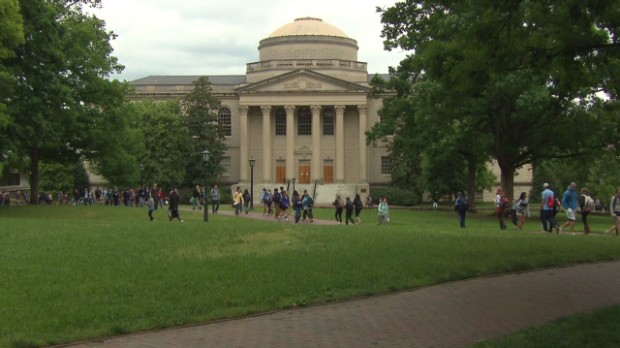 Three ways to keep student debt down WASHINGTON (CNNMoney) Amid great fanfare, President Obama on Monday announced plans to help more graduates tackle student loan debt.
Three ways to keep student debt down WASHINGTON (CNNMoney) Amid great fanfare, President Obama on Monday announced plans to help more graduates tackle student loan debt. However, the number of students that will benefit is like a drop in the bucket.
"We're probably not going to have many new borrowers saying: I'm going to qualify for this," said Mark Kantrowitz, publisher of Edvisors Network, an educational resource for students.
What the President announced wasn't a new program; it's an expansion of cheaper terms of an existing loan repayment program. And it won't become available until December 2015.
People who took out loans before Oct. 2007 will qualify for the program. It lowers the amount that graduates pay, capping repayments at 10% of income. Currently, their payments are capped at 15% of income.
Nearly 5 million borrowers would qualify under this expansion.
Many graduates who took out loans after Oct. 2007 already qualify for the 10% cap.
Struggling to pay off student debt?
However, it has never been that popular -- Only 1.8 million borrowers nationwide have enrolled in similar repayment programs. That compares to 40 million with student loan debt nationwide, according to federal data.
Why? Because few people know about these programs, even though this is the second time in three years that President Obama has used his bully pulpit to promote them.
Also, the programs target a narrow base. They are designed to only help the poorest borrowers living on the edge. "No more than 10% of student loan borrowers qualify for the programs," Kantrowitz said.
Could Elizabeth Warren have made it today?
Still, borrowers catch another break -- monthly payments are based on income that is at least 150% above the poverty line.
The 2014 poverty threshold for a single person is $11,670. So, a graduate living alone would make payments capped at 10% of any dollars made above $17,505.
The programs can't help borrowers with private loans, which comprise about 15% of all student loans, according to the Consumer Financial Protection Bureau. They also can't help borrowers who have already defaulted on student loans.
New borrowers of student loans! can also enroll in the repayment plan called Pay as You Earn, which also forgives loans after 20 years, rather than the earlier limit of 25 years.
One big question is how will the administration pay for the expansion. In past budgets, the administration has suggested it would cost several billion dollars to expand the program.
U.S. Secretary of Education Arne Duncan said on Monday "we actually don't know the cost yet."
No comments:
Post a Comment